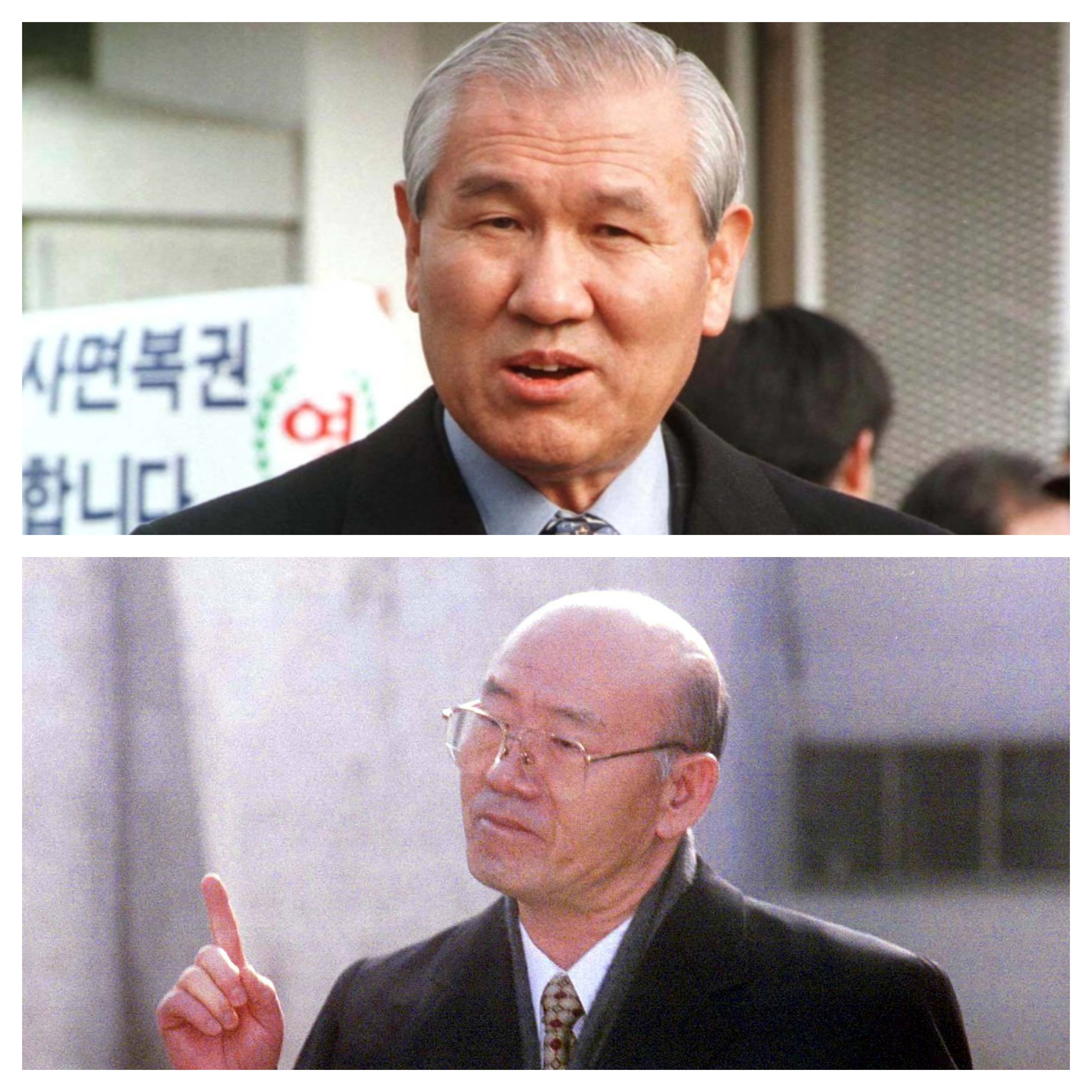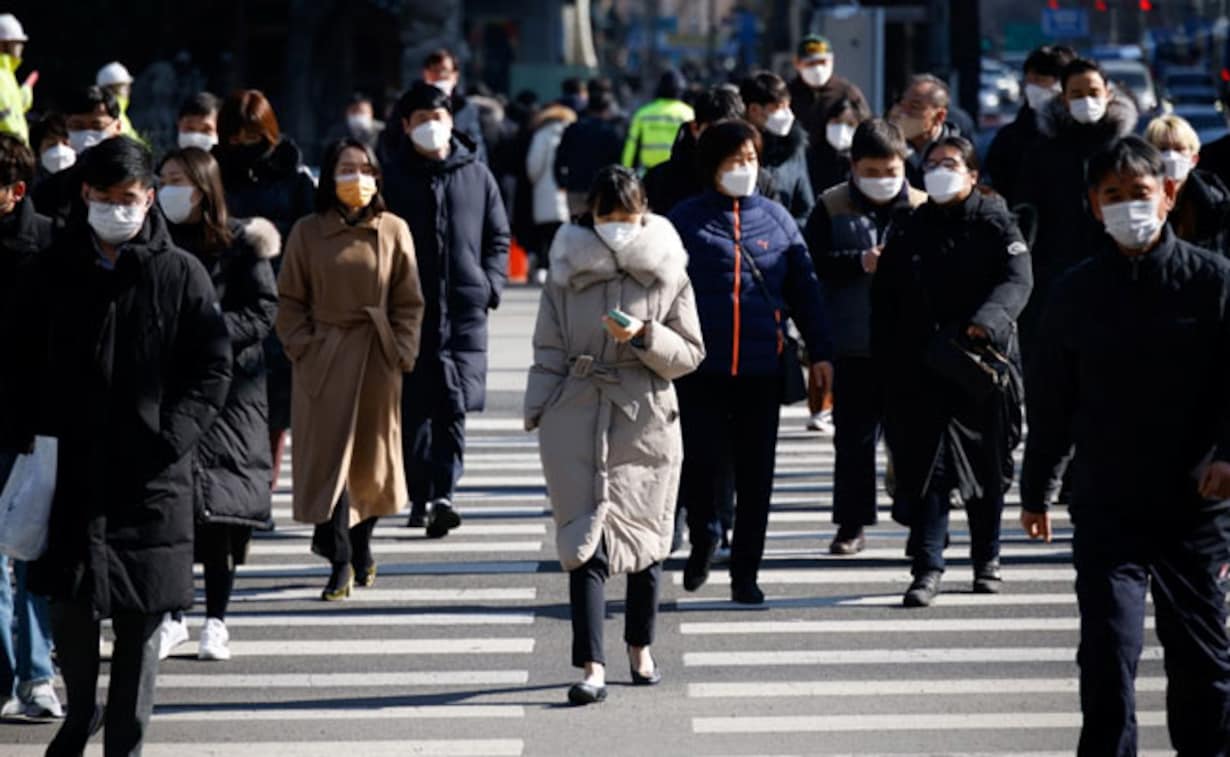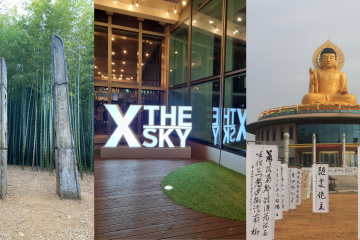
2021 has been an eventful year. Korea has not been spared. There were good and bad things that happened, things that caused angst, things that caused delight.
Table of Contents
Death of former Presidents
 Ex-Presidents Roh Tae-woo and Chun Doo-hwan, heavily criticized for their role in a coup and a bloody crackdown on a pro-democracy uprising, have died nearly a month apart.
Ex-Presidents Roh Tae-woo and Chun Doo-hwan, heavily criticized for their role in a coup and a bloody crackdown on a pro-democracy uprising, have died nearly a month apart.
Roh, who was president from 1988 to 1993, died on October 26 of chronic illnesses after suffering from prostate cancer and cerebral atrophy.
Less than a month later, Chun, who ruled South Korea with an iron fist from 1980 to 1988, followed his successor and friend Roh. He died on November 23 after suffering from blood cancer.
Roh Tae-woo, in his will, asked for forgiveness to the victims of the brutal crackdown on the uprising in Gwangju. Whereas Chun Doo-hwan did not apologize, apart from a brief message sent by his wife after his death, which was not accepted as a sincere apology by the families of the Gwangju victims.
As a reminder, Chun imposed martial law and cruelly suppressed the pro-democracy uprising in Gwangju in May 1980 before officially becoming the president of Korea in September of the same year. In 1987, the death of a young student under intelligence torture sparked widespread pro-democracy protests across the country, which resulted in Chun nominating Roh as the ruling party’s presidential candidate. Roh was elected president after promising to restore him during the campaign.
In 1996, Chun and Roh were respectively sentenced to life imprisonment and 17 years in prison, for their role in the coup and bloody suppression of the Gwangju uprising and for corruption. The following year, they were pardoned by their successor Kim Young-sam.
Failed ‘Living with Covid’ Plan
It’s been almost two years since the first covid case was confirmed in South Korea. It was back in January 2020.
Since the outbreak began, this is the strongest wave the country is facing. We saw new cases surpass 7,000 a day and at the time of writing, the average is 5,000/day. During the fourth wave in July, the new cases were only around 1,000. The rise was very abrupt.
The number of critically ill COVID-19 patients is at an all-time high level, with more than 1,000.
In early November, Korea unveiled the “living with Covid-19” plan for a gradual return to normalcy because of the back-then high rate of vaccination. But the jump in confirmed cases and seriously ill patients has led to the suspension of the program and strengthening of social distancing measures.
Appalling Facts in Korean Society
Death of Jeong-In
Jeong-In was a 16-month-old baby girl who died in October 2020 due to repeated mistreatment (several abdominal injuries and internal bleeding which were caused by a “powerful external force”) by her adoptive parents. The police received two statements in May and June 2020 of suspected ill-treatment of Jeong-in. However, the investigation was ended, following comments from the adoptive parents who claimed to have given her massages or taught her how to sleep. In May 2021, the adoptive mother was sentenced to life imprisonment for fatal child abuse. The woman’s husband was sentenced to five years in prison for child abuse as well as aiding and abetting Jang’s violence towards their adopted daughter.
Murder and child abuse
In March, a couple was indicted on murder and child abuse charges over the death of their 10-year-old niece who was found to have suffered assault, including water torture.
Abuse and murder of a baby girl
In July, a 29-year-old man was indicted on charges of sexually assaulting and abusing a 20-month-old toddler to death at his home in Daejeon.
Femicide in Korea
In March, in Seoul, Kim Tae-hyun, 25, was sentenced to life imprisonment for stabbing to death a woman he was stalking, as well as her mother and little sister.
In November, another stalker killed his ex-girlfriend. The victim reported the stalking and threats six times to the police. She died on November 19, a few days after her last report.
MZ Generation
Almost everywhere around the world, Millennials (born 1981-1996) and Generation Z (1997 – 2012) are considered distinct, different. But in Korea, the pairing of those two groups gave birth to the term ‘MZ Generation’. Both these groups are socially conscious and environmentally aware. They represent people who are digital-savvy and interested in social issues, people who suffer from rising house prices and low employment rates. The unemployment rate among young people (20-29) is at 5.7%.
Against the backdrop of scarce employment opportunities, a large number of young people have turned to real estate and stock market investments by relying on loans. That debt investment exceeded 38 trillion won in the first six months of 2021.
These young people expressed their anger in particular against the political environment which did not provide effective policies for them.
The ruling party’s crushing defeat in the April by-elections was a crucial barometer for the 2022 presidential election. The MZ generation is turning to the conservative parties. It goes without saying that that election will largely depend on the choice of this generation.
Surge in Real Estate Prices
House prices have continued to soar this year, heightening concerns among those who do not yet own a home. Between July 2020 and July 2021, average house prices in South Korea’s main cities (including Busan and Seoul) increased by 26.7%, according to data reported by The Korea Herald.
The growth in home prices reached 42.6% in Sejong, almost triple in Gwangju.
The measures put in place by the government (tax increases and regulations on loans) further fueled the buying frenzy; which is normal. The government should have planned this. Because before housing permanently becomes out of their reach, people don’t want to miss what could be the last chance.
Peace in Corea?
*Corea refers to the Korean Peninsula.
Communication channels between the two Koreas were unilaterally cut off in August 2021 by Pyongyang. But they were reinstated in October 2021.
The context remains tense. But this still suggests a thaw in inter-Korean relations.
Korean Culture Is in The Spotlight, Now More Than Ever
BTS, “Squid Game” and “Minari” dominated the global entertainment industry this year.
For BTS’s Butter, the music video reached ten million views on YouTube in about thirteen minutes. And, breaking yet another record—one previously set by “Dynamite”—within the first twenty-four hours, “Butter” achieved 108.2 million views on YouTube.
In addition, the septet won three awards at the American Music Awards (AMA) and became the first Asian group to win the top prize of Artist of the Year at the AMA.
On the cinema side, “Minari”, telling the story of a family of Korean immigrants, was acclaimed by critics by collecting many prizes including the Grand Jury Prize at the Sundance Film Festival, the prize for the best foreign-language film at the Golden Globe Awards and at the Critics Choice Awards.
In particular, Youn Yuh-jung, through her Oscar for Best Supporting Actress, became the first South Korean person to win an Oscar as an actor or actress.
“Squid Game” has become the most-watched Netflix content of all time with more than 1.6 billion hours of viewing in the first four weeks after its release in September.
The series has won a few awards and nominations for major events in the United States including the Golden Globe Awards and the Gotham Awards.
South Korea: A Space Power?
With Nuri, South Korea is joining the tight-knit club of countries capable of orbiting satellites weighing more than one ton. It is clear that this is a turning point in the history of the aerospace development of the country. The launcher is 100% made in Korea, from concept to launch.
The launch of the space rocket took place on October 21 at the Naro Space Center in Goheung, in the south of the country.
The South Korean government and industries have spent nearly 2 trillion won ($1.8 billion) on development since 2010.
They plan on making a new launch next May and four more until 2027.
Project Oceanix in Busan, Korea
Part of the world’s population is threatened by rising sea levels or extreme weather events such as hurricanes. So, to make cities more resilient to the consequences of global warming, architects are competing with projects for ecological and autonomous cities capable of accommodating climate refugees. Oceanix is one of those projects.
On November 18, 2021, the city of Busan announced a partnership with Oceanix to build the world’s first floating city off its coast. Fully modular and autonomous, this floating city is able to withstand any type of natural disaster.
Construction is expected to start in 2022 and last for three years.
This was a recap of almost everything that happened in 2021 in South Korea.
Happy new year! See you in 2022 with more interesting content on Kworld Now.



















